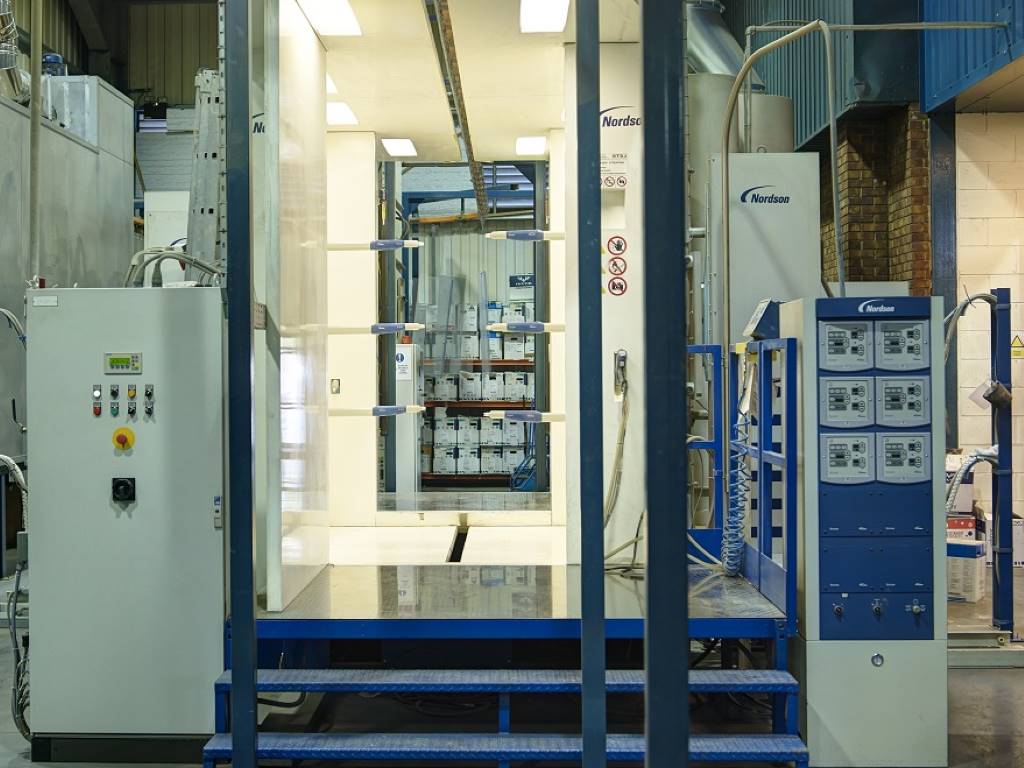Report urges UK manufacturing to embrace the next industrial revolution

UK manufacturing must embrace the next industrial revolution if it is going to retain its place as a force in the global economy it was revealed recently.
The Internet of Things, or Industry 4.0 as it is commonly known, will be one of the main changes to hit the sector over the next 15 years, opening up opportunities in new markets and the way mass produced products are personalised to meet consumer demand.
More than 50 business leaders were present at the launch of Business in the Community's Future Insights Report on ‘The UK in 2030 Key Trends for Manufacturing' and heard how investment in ‘Smart Factories' has the potential to improve productivity in this country by up to 30%.
Developed in partnership with Pinsent Masons, the guide also warns about planning for depleted raw materials, the impact of climate change on global supply, growing political uncertainty and the need to move towards Servitisation.
Unsurprisingly, manufacturers will also have to tackle the twin challenge of an ageing workforce and changes in the kind of skills required from fewer manual workers to people with broader skills across IT, data, design and R&D.
“A new industrial revolution is underway; one that is blurring the boundaries between physical and virtual,” explained David Isaac, head of advanced manufacturing and technology at Pinsent Masons. Developments like the Internet of Things and 3D printing are disrupting traditional business models and offering us opportunities to improve our lives, jobs and our productivity.”
He continued: “This report sets out of some of the key developments that will affect the manufacturing sector between now and 2030 and how we can respond to them. Technology will be at the heart of these developments, but we shouldn't underestimate resources, demography, politics and climate change.”
The 22 page report, which is also backed by Business in the Community members Anthesis, Cisco, Lloyds Banking Group, Walgreens Boots Alliance and WSP:Parsons Brinckerhoff features a detailed insight into the trends we can expect to see in 2030 and recommendations on how to futureproof UK manufacturing in order to remain globally competitive.
It also showcases a number of current projects that are already addressing issues raised in the report.
Key predictions and responses include:
Connected Manufacturing
• By 2030, connected and autonomous vehicles could create an additional 320,000 jobs in the UK • The global market for additive manufactured products will grow from $3 billion to $100 billion per annum by 2020
• In 2020, 50 billion devices will be networked on the Internet of Things
Connected Manufacturing: Recommendations
• Explore how connected technology can enhance the productivity of workers and the potential of remote operations
• Patent, patent, patent. Protecting IP will matter even more in this new world
• Use 3D printing to accelerate prototyping and testing
• Use new data analytics and connectivity to develop smarter factories which can self-diagnose faults before machines fail
Sustainability
• Demand for metals will increase by 30-50% by 2020
• The value of low carbon technologies in the UK could reach £126.5 billion
Sustainability: Recommendations
• Explore the market for sustainable products: design out waste, use lightweight materials, reduce inventories and manage supply chains better
• Develop circular manufacturing models focused on re-use, re-manufacturing and recycling where products or components are leased and then returned
• Create agile and flexible supply chains to ensure business continuity in the event of natural disasters
Value Change
• The concept of Servitisation, where manufacturers sell services alongside or instead of a product, will grow exponentially
• Digitisation of manufacturing will make it easier to locate production in multiple countries and increase flexible operation
Value Change: Recommendations
• Explore the full range of new business models and supply chains: collaborative, circular and Servitisation
• Businesses need to focus on the whole solution, not just the product, responding to greater customer demand for personalisation
Politics
• Manufacturing will become more complex and interconnected with challenges arising from greater cross-border working, data sharing and the need for new types of IP protection • Reshoring to the UK could create up to 200,000 extra jobs by 2025 and add between £6 billion to £12 billion to the economy
• Greater collaborative initiatives – such as ‘Horizon 2020' and ‘Made in China 2025' – will drive new opportunities
Politics: Recommendations
• Understand and manage the political risk of extended supply chains and international partnerships
• Apply political risk factors to decisions about offshoring and reshoring
• Companies will need to be prepared for both federalisation and globalisation
Demography
• Older and wealthier populations will increase, with the global middle class forecast to rise from 1.8 billion people to 4.9 billion in 2030.
• 28% of the UK population will be over 60 by 2030
• By 2020, 800,000 additional workers will be needed in manufacturing to replace those retiring
• Global spending on robots will increase from $15 billion to $67 billion by 2025
Demography: Recommendations
• Tailor products to meet the needs of the newly wealthy in developing economies
• Take advantage of a more urbanised world to locate factories closer to consumers to reduce costs
• Develop new training and retraining schemes to secure the future capabilities manufacturing will need
• Advancing technologies do not need to have a negative impact on workforce. Companies should think in terms of augmentation and what employees might achieve if they have a ‘thinking machine' assisting them, instead of just replacing an employee's skills
Gudrun Cartwright, head of innovation and partnerships at Business in the Community commented: “I'm delighted that Birmingham – the heartbeat of UK manufacturing – was chosen to launch this informative report.
“What is clear from the trends set out in this document is that, by 2030, UK manufacturing will look very different but, with the right policy and business responses, it will retain its critical role in our economy and in supporting our competitive position in the world.”
A full copy of the report can be downloaded at: http://bit.ly/1Iec5Ep About Business in the Community Business in the Community is the Prince's Responsible Business Network. Its members work together to tackle a wide range of issues that are essential to building a fairer society and a more sustainable future.
It is a business-led, issue focused charity with more than 30 years' experience of mobilising business, engaging thousands of businesses through its programmes driven by a core membership of over 800 organisations from small enterprises to global corporations.
www.bitc.org.uk
About Pinsent Masons
Pinsent Masons is a global 100 law firm, specialising particularly in the energy, infrastructure, financial services and advanced manufacturing and technology sectors.
www.pinsentmasons.com












